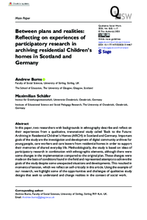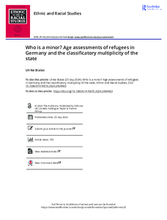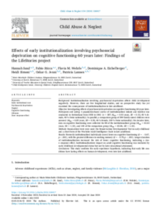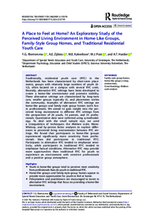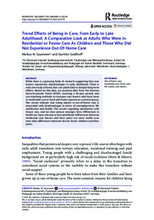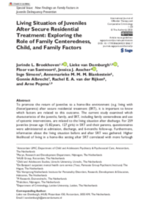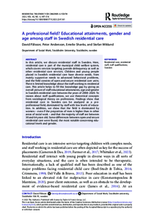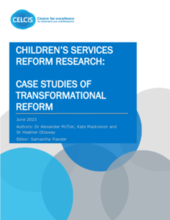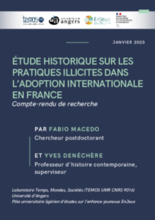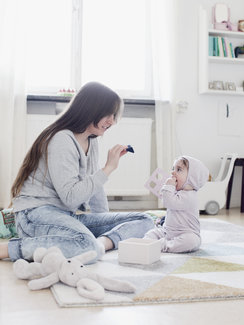

Displaying 1 - 10 of 237
In this paper, two researchers with backgrounds in ethnography describe and reflect on their experiences from a qualitative, transnational study called 'Back to the Future: Archiving in Residential Children's Homes (ARCH) in Scotland and Germany. Important goals of the study are the investigation and development of digital community archives for young people, care workers and care leavers from residential homes in order to support their memories of shared everyday life.
This study examined the categories that states use to classify and govern migrants. Unaccompanied minors and adult asylum seekers are treated very differently regarding their asylum cases and residence permits. The study focused on Germany, where the courts and youth welfare offices commission age assessments to decide whether young migrants will be considered minors or adults. These assessments are carried out by forensic medical examiners and social workers, respectively, who work with very different understandings of what constitutes age.
The purpose of this longitudinal study conducted on institutionalized infants and toddlers in Switzerland from 1958 to 1961 and then 60 years later on the same group, is to investigate the effects of psychosocial deprivation on cognitive functioning in late adulthood.
This study aimed to investigate developmental outcomes of children raised in institutions in Switzerland in conditions of psychosocial deprivation and to identify possible risk and protective factors at institutional and child levels.
The authors of this study aimed to gain insight into the perceived living environment in different residential youth care settings from the perspectives of 26 youth, 14 parents, and 35 professionals in the Netherlands.
This article addresses two issues: whether the inequalities faced by cared for children will persist in different stages of their lives and whether these inequalities are dependent on the specific out-of-home care setting, i.e. residential or foster care. The authors examine data from the German Socio-Economic Panel (SOEP), covering a 50-year period.
To promote the return of juveniles to a home-like environment (e.g. living with (foster)parents) after secure residential treatment (SRT), it is important to know which factors are related to this outcome. The current study, based in the Netherlands, examined which characteristics of the juvenile, family, and SRT, including family centeredness and use of systemic interventions, are related to the living situation after discharge.
In this article, the authors discuss residential staff in Sweden where residential care is part of the municipal child welfare system, which covers services targeting juvenile delinquency as well as other residential care services. Children and young people placed in Swedish residential care have diverse needs, from mainly supportive needs to advanced behavioral problems, and the field consists of open and secure residential care units.
Case studies of transformational reform programmes examined a range of approaches to the delivery of children’s services to better understand the evidence regarding systems-level integration between children’s social work/social care with health services and/or adult social care.
This study examines international adoptions by French people in more than twenty countries from 1979 to 2021. Researchers analyzed thousands of diplomatic files from the French Ministry of Foreign Affairs on the subject and found reports of various illicit practices in the process of adopting children.

